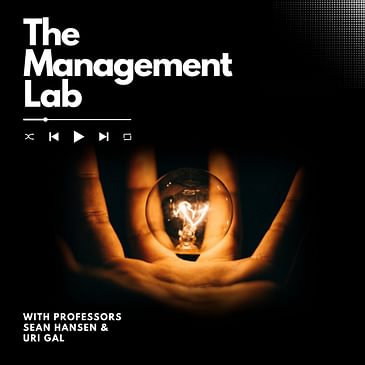Techno-stress refers to the stress we feel because of our inability to adjust to the introduction of new technologies. It can reduce workers’ job satisfaction, increase attrition, and hinder organizations’ ability to innovate. Sean and Uri examine the science of the causes, nature, and implications of technostress, and how managers can mitigate its negative effects.
Research discussed in the episode:
- Ayyagari, R., Grover, V., & Purvis, R. (2011). Technostress: Technological antecedents and implications. MIS Quarterly, 35(4), 831-858.
- Califf, C. B., Sarker, S., & Sarker, S. (2020). The bright and dark sides of technostress: A mixed-methods study involving healthcare IT. MIS Quarterly, 44(2), 809-856.
- Nastjuk, I., Trang, S., Grummeck-Braamt, J. V., Adam, M. T., & Tarafdar, M. (2023). Integrating and synthesising technostress research: a meta-analysis on technostress creators, outcomes, and IS usage contexts. European Journal of Information Systems, 1-22.
- Tarafdar, M., Pullins, E. B., & Ragu‐Nathan, T. S. (2015). Technostress: negative effect on performance and possible mitigations. Information Systems Journal, 25(2), 103-132.
